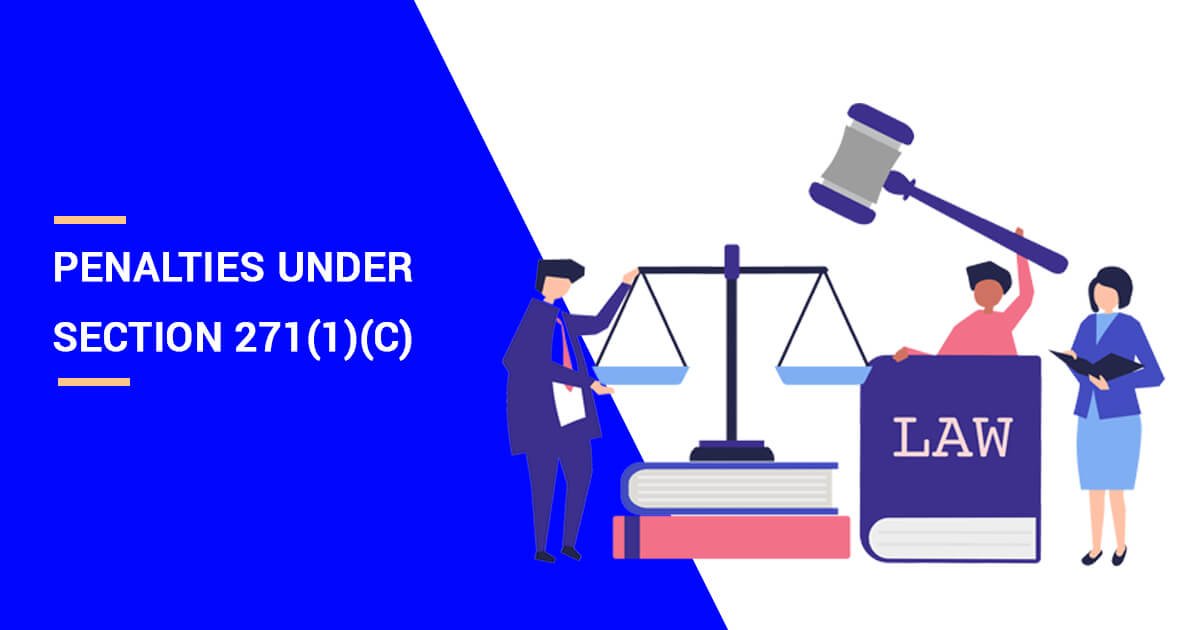
Understanding Section 271(1)(c) of the Income Tax Act: Penalties for Concealment of Income and Furnishing Inaccurate Particulars
Introduction:
The Indian Income Tax Act of 1961 contains numerous provisions aimed at regulating taxation in India. Among these, Section 271(1)(c) holds significant importance as it deals with penalties imposed for concealing income or furnishing inaccurate particulars of income. This blog aims to provide a comprehensive understanding of this crucial section.
Section 271(1)(c) Explained:
Section 271(1)(c) of the Income Tax Act mandates penalties for individuals who fail to provide accurate details of income or intentionally conceal income during tax filing. The penalty ranges from 100% to 300% of the tax payable on the concealed income.
Key Concepts:
- Concealment of Income: This occurs when a taxpayer deliberately omits to report or disclose income earned during the financial year. Examples include not reporting income, exaggerating deductions, or misrepresenting facts related to income.
- Inaccurate Particulars of Income: This refers to situations where a taxpayer reports income but provides incorrect details, such as inaccurate amounts or descriptions of income sources.
Penalties:
– The penalty under Section 271(1)(c) varies based on the severity of the offense and the taxpayer’s intention.
– It is calculated based on the amount of concealed income:
– Up to Rs. 50,000: Penalty equals 100% of concealed income.
– Between Rs. 50,000 and Rs. 3 lakh: Penalty equals 150% of concealed income.
– Exceeding Rs. 3 lakh: Penalty equals 300% of concealed income.
Importance of Compliance:
Ensuring compliance with Section 271(1)(c) is crucial for taxpayers to avoid penalties and legal repercussions. Accurate reporting of income and providing truthful details are essential to prevent any adverse consequences.
Frequently Asked Questions (FAQs):
Q: What is the penalty range under Section 271(1)(c)?
A: The penalty can range from 100% to 300% of the tax payable on concealed income.
Q: How is the penalty calculated?
A: The penalty amount depends on the amount of concealed income, with different percentages applied based on the range of concealed income.
Q: What constitutes ‘concealment’ of income?
A: Concealment occurs when a taxpayer intentionally fails to report income earned during the financial year.
Q: Can a taxpayer appeal against the penalty?
A: Yes, taxpayers can appeal to the Commissioner of Income Tax (Appeals) or the Income Tax Appellate Tribunal against the imposed penalty.
Conclusion:
Understanding Section 271(1)(c) of the Income Tax Act is essential for taxpayers to comply with tax regulations and avoid penalties. By accurately reporting income and providing truthful details, taxpayers can ensure smooth tax filing processes and maintain financial integrity.
